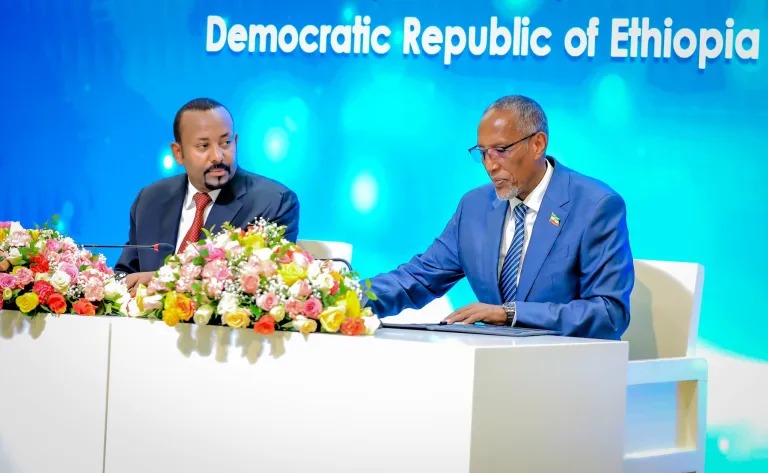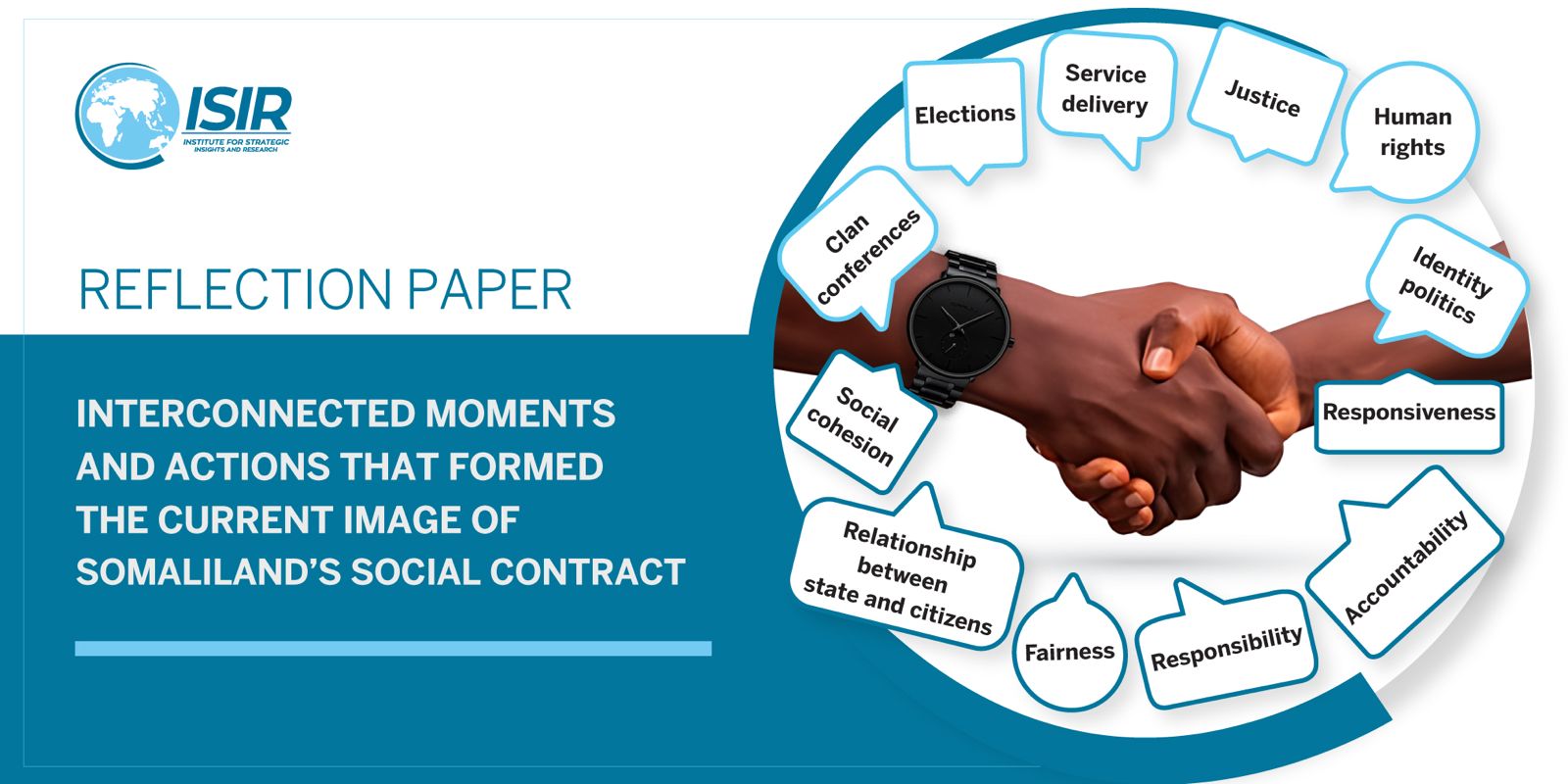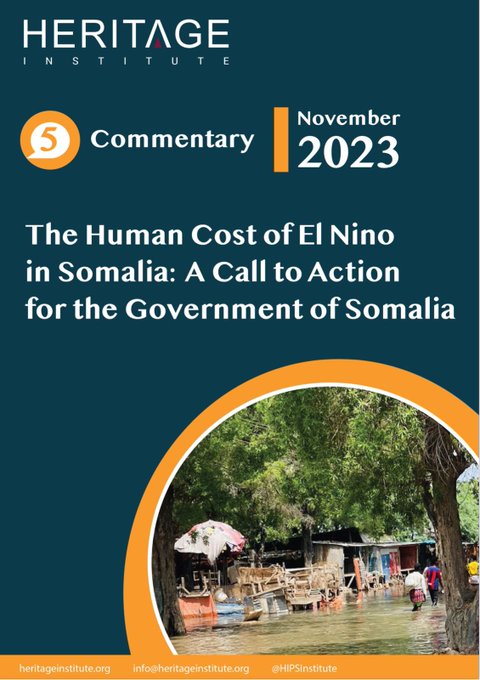Your Excellency!
Google A few ideas for your political campaigns, Your Excellences 46 Shares Share Tweet Email Share by Liban Obsiye Friday, September 6, 2019 Your Excellency! Somali politicians have already started their political campaigns and by January 2020 it is certain that campaign activism will increase. In terms of channeling messaging, the politicians are spoilt for choice with the widest variety of media accessible to them now. In fact many use social media, Instagram,TV, Radio, websites and even their own WhatsApp to remain visible and connect with audiences. The only issue delaying the official public campaigns is what form the 2020-21 elections will take but other than that current MPs and those who want to join their ranks are in no doubt that the upcoming elections will be even harder than those before it. However, whatever form the elections take the fact is that Somali politicians must improve their campaign skills. The starting point for this is better communication.
Anyone who has listened to Somali political speeches notices a few unique things. Somali politicians like to say a lot because they feel saying more means knowing more. They also like to both praise themselves and blame others without reviewing their own shortcomings. The concept of personal responsibility appears to have not taken hold in Somali political campaigns. The argument remains the same: “I am good, they are bad” or “If they did not do that I would have done better.” Both are immaturely simplistic, ineffective and hide a wider communications deficit on the part of Somali politicians.
Stop talking too much,
Excellency Talking too much as a politician is a problem. A big problem. The ideal message for a politician is one that is short, sharp and well-targeted to the audience. Speeches must be memorable not boring. Audiences must be able to remember the main points, punch lines and key catchphrases without too much hassle and not think thank goodness the lecture is over. Politicians must also remember to stick to the topic. Yes, just speak on what you have set out to address. If you are speaking about education, do just this but not how the last government was corrupt or your Political Party’s new vision for security or even explain on going crisis in other parts of the country. Anyone who is familiar with Somali politics and campaigning will sympathize with this point. To keep audiences engaged and communicate effectively with them through all forums, Somali politicians should think before they speak, assess their audience and the event and simply focus on these.
There is every chance that the audience does not care about anything else. Where the forum is wider than single topics, it is wise to fully understand your own argument as a politician, prepare your key points in advance and then answer the questions or provide direct responses to the specific discussion topics at hand. One thing Somali debates, speeches and discussions are famous for is the long-winded thanking process and the general pointless niceties that waste so much time. Thank the audience once and then move on. Somali politicians should thank their staff, friends and family members in private and not in public forums as this is a total waste of time because the audience does not care about them or your connection with them.
It is not about you, Excellency
Many Somali politicians make the fundamental mistake that they are the center of the audience’s world. Sadly, they are not and many of them realize this too late when their former voters stop calling them or visiting them in their offices, coffee shops and at home. It is, sadly, at this point that the typical Somali politician worries and starts seeking out the clan elders to say he wants to engage with their constituents. It is also the best time for the opposition and potential future candidates to start their own campaign on the back of the failure of the incumbent to engage. After realizing they have lost touch with their voters, Somali politicians with the support of clan elders often organize meetings in which they seek to make amends. This is usually uninspiring because the whole thing turns into a self-imposed trial in which the politician acts as judge, jury and executioner on their own record.
Of course, none have to date executed themselves and have resigned after failing to engage and deliver and all will usually ask for a second chance. The tragedy in these meetings is that the politicians often talk at the audience defensively without engaging them on the key matters instead of speaking to the audience about their concerns, expectations and how to move forward. Therefore, again, the story of the meeting is solely focused on the politician rather than the real issues the audience care about like jobs, security and development in their constituencies. A simple stakeholder mapping exercise, an understanding of their key issues and simply LISTENING will make public engagement much more rewarding for Somali politicians.
See the BIGGER picture,
Excellency Somali politicians, like most of their counterparts across the world, are too focused on the minor details and have challenges with strategic vision. Speaking with, and working with some of them, it is clear many are convinced that you cannot have long term vision or policy and communications planning in Somalia. Most go with the flow and let the tide of events dictate their actions. Somalia is indeed a turbulent place at the best of times, but this is no excuse for planning to see the bigger picture, having a clear objective and getting public and parliamentary support for them.
A good example is this Parliament has been active politically but very few legal Bills have been passed. More worryingly, these legislations are top down and very little public consultation, education and discussions have gone into them. How will these laws be enforced? What are the people been asked to do? How will they do it? What is the penalty for non-compliance? Answering these questions are fundamental before legislations are passed in Parliament. Yet, very few people would know what is passed let alone what it means for their lives, businesses and future. On the issue of communicating disagreement and difference, Somali politicians almost always forget their target audience and often just directly attack individuals in all media platforms including Facebook, a favourite of many of them given its wide use by the Somali people, especially, the young. However, very few ever offer alternatives. Alternatives are important because they differentiate politicians and priorities from each other, they also mobilize target audiences to engage, support and act.
To connect Somali politics to the people in a systematic way to produce sustainable results and people centered and driven reforms and progress, Somali politicians and political elite must stop been blind to the bigger picture. They must open their eyes to strategic vision rather than been held captive by single issues and events. More importantly, direct public communication and engagement must be constant and not just for elections.
Excellency, Excellency, Excellency!!!
The triple exclamation marks in the sub-heading are deliberate. It symbolizes the personal dislike I and many of the Somali people whom the politicians need to engage with have for pointless titles. Yet, titles are important in Somalia and it appears a once culturally egalitarian society is now been driven towards false stratification and division by titles. Titles do not win elections, change agendas or inspire anyone. Titles are personal issues that do not impress past the paper CV. What matters is deliverables as an elected official. Somali politicians should role up their sleeves and stop throwing around credentials. These same politicians should also re-examine their obsession with titles and, instead, focus on delivering tangible results for their people. Good communication, public engagement and messaging needs this strong base to really have an impact. Remaining successful politician requires impact! In the end, EXCELLENCY, it is all connected.
The author welcomes feedback through the below means:
libanbakaa@hotmail.com
@LibanObsiye (Twitter)
Categories: Opinion













